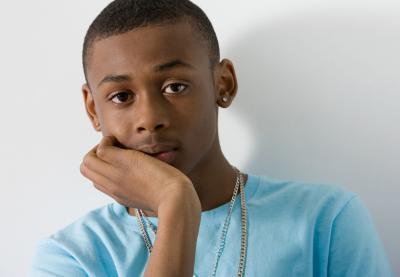Editor’s note: Because many students with marginalized identities find their bullying or harassment go unreported or unrepresented, we know we are not seeing every incident of hate and bias in U.S. schools. So we’re asking for your help. If you know of a school-based incident of hate or bias, please let us know at hateinschools@splcenter.org.
Reported incidents of hate and bias involving U.S. schools and students remain down as summer draws near. Media outlets covered 38 such incidents in April—one of the lowest totals we’ve seen since we began tracking hate incidents in October of last year.
The reasons for this downward trend are unclear. Nationwide school walkouts, teacher protests and days of action commanded much of the attention from education reporters. Many school districts also had their Spring Break in April, and regular classes were disrupted for testing. With fewer days in school and few eyes looking away from teacher and student activism, this month’s low number may or may not reflect a trend in the right direction. Students and families often remain their own best advocates in publicizing incidents of hate that aren’t reaching the public eye.
Though the number is low, April did not lack for severity. Unsafe school environments led to harassment, threats and, in some cases, students and teachers driven away from their schools entirely. Here are some of the trends that stood out among the 38 school-based hate incidents reported by the media:
- The incidents occurred in 21 states, from Alabama to Wyoming.
- The highest number of reported incidents occurred in Maryland and Missouri (four each).
- At least 11 incidents were sparked by social media posts, including a viral prom proposal from Sarasota, Florida, in which a boy held up a sign that read: “If I were black I’d be picking cotton, but I’m white so I’m picking U.” This inspired two copycat proposals in Missouri and Michigan.
- More than half (21) of the incidents took place in high schools.
- No fewer than 10 incidents involved racial slurs, and six involved students directly threatened because of their racial identity.
These threats underscore a disturbing theme of the April report: Too many students—and even teachers—face unsafe situations while at school.
At a high school in Bay City, Michigan, students are allegedly using Confederate flags and racial slurs to intimidate the small minority of black students. This harassment has included a caravan of trucks surrounding the school while brandishing the flag. In Eufaula, Alabama, a mother felt forced to withdraw her 15-year-old daughter from her private high school because leadership failed to address repeated use of racial slurs.
In Millbrook, Alabama, a mom tells us that her daughter received an airdrop text message that said, “klu klux klan [sic] keep calm and burn [n-words].” At a Pasadena, Maryland, high school where three hate incidents took place in April, a noose was found in a pickup truck that was also displaying the Confederate flag.
And in Hamburg, Arkansas, a 12-year-old black girl received a Snapchat message from a classmate that included this threatening message: “Hey can u tell [redacted name] and [redacted name] that I’m gonna whoop they [n-word] ass and when I get done with them im gonna hang them and burn they bodies.”
April also served as a reminder that an emboldened culture of hate across the country has led to increased harassment for marginalized youth whose identities are often the subject of political attacks. Muslim students, Latino students, students from immigrant families, students with disabilities and LGBTQ students were all targeted.
In St. Louis, a middle school girl hurled foul language at another girl wearing a hijab, telling her to “go back to where the — you came from.” In Wichita, Kansas, a high school tennis player taunted his Muslim opponent with a vitriolic use of “Allahu Akbar.” A substitute teacher in Memphis, Tennessee, told fourth-graders that Mexicans should be kept out of the United States.
In San Angelo, Texas, teens recorded a student with autism while he used the bathroom at their high school and posted the video to social media. In El Paso, Texas, high school students orchestrated a series of “challenges” that included “jump over a midget.” The only little person in the school told reporters she felt endangered.
This harassment extends to adult targets, too. In Seneca, Kansas, for example, a gay teacher was driven to leave his job and lifelong home after receiving a series of threatening letters from the community. The school district refused to clearly signal support for LGBTQ teachers and students in the face of these letters, one of which read: “I know where you live. I know a lot about your schedule. You need to watch your back cause I ain’t alone. We want you gone queer.”
While some districts respond admirably—such as the principal in Pasadena, Maryland, who is taking public accountability for a hostile school climate and at least trying to take steps forward—this theme of indifference toward hate incidents comes up time and time again.
In Jacksonville, Florida, parents alerted administrators that an elementary school teacher is using racial slurs in class and has even had her students play a “slave game” in class that involved a bucket and a rock. They allege this complaint has been ignored for two months.
This response remains all too common and reminds us that silence—particularly silence in the face of hate—speaks volumes. We once again implore every school leader and educator to speak up. To refuse to accept harassment as an unpreventable aspect of the school experience. To understand and to insist that every student deserves to feel safe.
Until they do, we will continue to track hate in schools and advocate for the equitable treatment and protection of all students. The future health of our diverse democracy depends on it.
Collins is the senior writer for Learning for Justice. To report a hate incident happening at your school or community, email hateinschools@splcenter.org.


0 COMMENTS